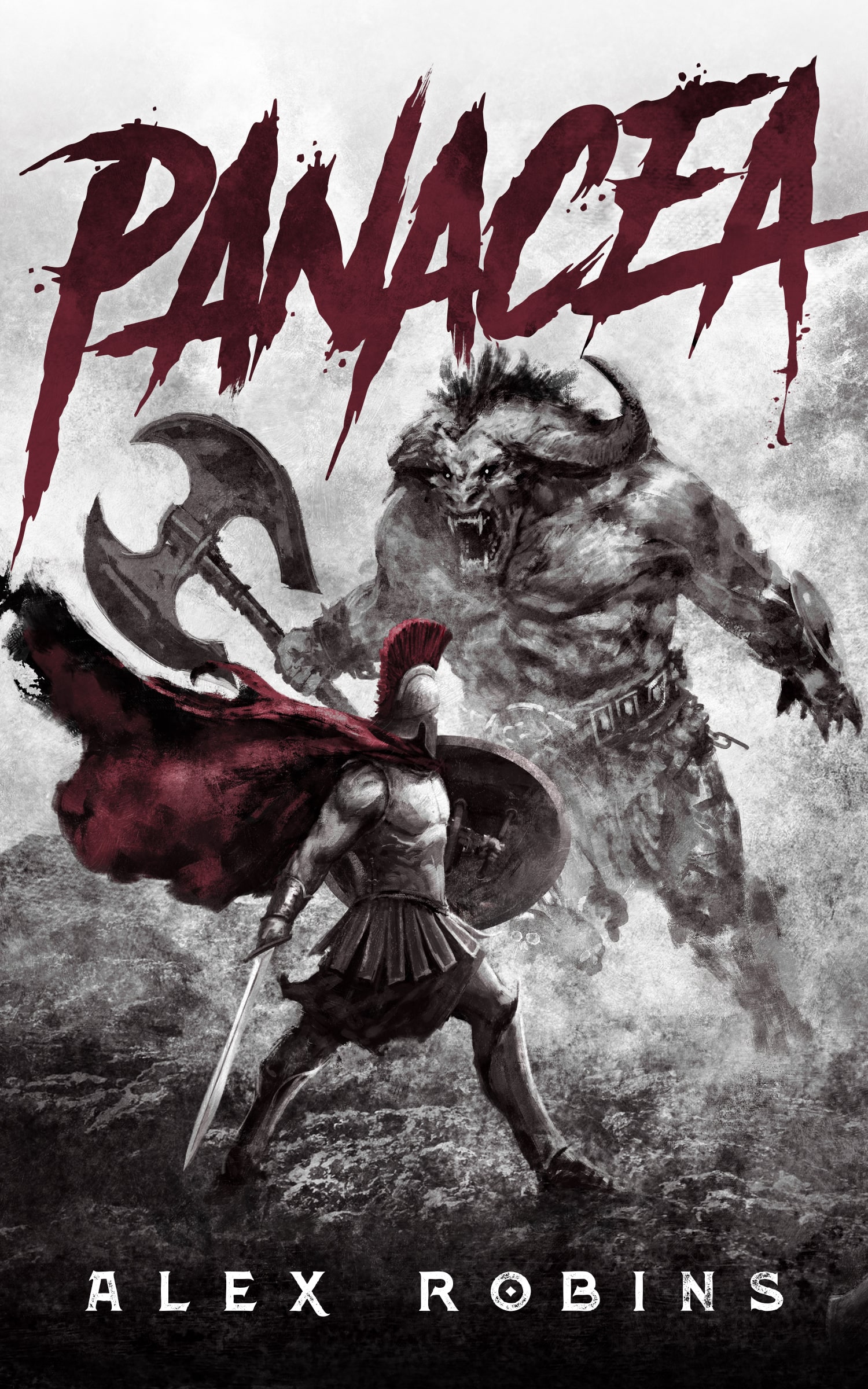March of the Sequels: Alex Robins
27 Mar 2023The Author/s

Alex Robins
Alex Robins was born in Norwich, England back when it was still trendy to wear lycra tracksuits and bright pink headbands. Norwich School Library was where he first discovered his love of reading, an old converted undercroft packed to the rafters with books. The first fantasy series he read was The Dragonlance Chronicles by Margaret Weis & Tracey Hickman, quickly followed by The Hobbit, The Lord of the Rings, and David Eddings' The Belgariad.
At the age of twelve Alex moved across the channel to Nantes in France. Speaking very little French, the first few years were difficult and sometimes lonely as he scrambled to get a grip on the intricate grammar and vocabulary of the French language. His taste in books branched out from epic fantasy to science-fiction, mysteries, thrillers, and historical fiction, but he always came back to his favourite fantasy authors when looking to escape the outside world.
After degrees in agronomy, project management, and computer sciences, Alex founded his own company dedicated to online voting. He met his wife during a game of badminton and they spent several years getting trounced in various regional tournaments before getting married. Alex now lives in the sunny Loire Valley in western France, surrounded by imposing castles, sprawling vineyards, and two children. After reading fantasy books for the last thirty years he decided to write one. The Broken Heart of Arelium is his first novel, and the first in the War of the Twelve series.
The Interview
First of all, tell me a little about your series and introduce us to the sequel(s).
Hi Jamedi, and thank you so much for letting me be a part of this.
The War of the Twelve series is a Gemmell-inspired epic fantasy set three hundred years after a catastrophic war between the humans of the nine Baronies and a race of malevolent creatures known as the greylings. The greylings were ultimately defeated and forced to retreat into the depths of six enormous underground caverns known as the Pits.
Unfortunately, as time goes by, many things are forgotten and the greylings pass from history into myth. The human race becomes complacent, leaving most of the Pits either unguarded or watched by the pitiful remnants of a ragged group of soldiers called the Old Guard.
When the greylings finally return at the beginning of the first novel, they catch the nine Baronies completely by surprise. The four books then follow humanity’s desperate race for survival, their struggles to form new alliances, and the reawakening of the titular Twelve, age-old demigods with their own hidden agendas.

You can get a copy from Amazon.
Do you find that most of your readers continue to read the whole series? Why do you think that is?
It’s hard to pin down an exact number, but looking at reviews and page reads I’d say just under half my initial readers finish up the remaining three books.
There’s that awful paradox where the first book was my debut novel, so probably the weakest of the entire quarter, but it’s also the book you have to get into people’s hands and make sure they like enough to push on to the rest of the series where the quality of the writing and storytelling improves dramatically.
How difficult is it to add new characters in a sequel into already established relationships?
Incredibly easy, just as it is in real life I suppose. Friends come and go. Some relationships deepen while others fall apart. There’s a natural ebb and flow in the evolution of social circles that’s unavoidable. We are always changing, and those around us are too.
I think when writing epic fantasy the difficulty is not how to add new characters, but rather why. Do they serve a purpose? Advance the plot? Character bloat can be a real problem, and it may not be the best of ideas to spend two pages introducing your new favourite adventurer only to kill him off in the following chapter.
Is it difficult to continue with worldbuilding for a world you have already built in book 1? Do you find it easier to switch locations for the sequel and start again with worldbuilding?
The War of the Twelve books are all set in the same place, the land of the nine Baronies, which is a sort of alternate feudal England; so a series of independent states with their own rules, leaders, and armies. The bulk of the worldbuilding was done in the first book, then evolved organically for the three following entries into the series. What I quite like about the worldbuilding is that book one does a lot of the heavy lifting. By the time we get to book 2, it’s more the case of delving deeper into established concepts that the reader already understands, or, even better, revealing that all is not necessarily as it seems.
Have you ever been stymied by a worldbuilding or plot detail from book 1 that is very inconvenient to deal with or write your way around in subsequent books?
I don’t think so? There may be a plot hole here or there that I may have missed, but in most cases, I had a very clear idea of where things were going and what needed to be done so everything ended up where I wanted it to be.
A slight problem I have writing these novels is that a lot of History is based on perception rather than reality. The way one character remembers certain events can be very different to another. It’s the infamous “unreliable narrator trope”. The downside of this is that I occasionally get reviews saying “They never would have done this!” or “No way would character X have acted like this!”, and I have to hold myself back from screaming out “None of this is real!”
Could you tell us about your other series, The Ruined Gods?
Of course! Thank you for the opportunity!
The Ruined Gods is definitely a bit of a wild swing for me as it’s a mashup between traditional epic fantasy and Greek Mythology. So think 300, Clash of the Titans, or (if you are old like me 😊) the sixties and seventies stop-motion Ray Harryhausen films like the seminal Jason and the Argonauts.
Looking at what’s available today I could find lots of more “serious” mythology novels like Miller’s Circe, or historical fiction like Cameron’s Killer of Men (both are good, by the way!), but no pulpy, easy-to-read action-adventure stories … which is why I wrote this!
Panacea is the first book in the series, with the second novel planned for release some time later this year.

Would you say your craft has improved with the subsequent books?
Oh, 100%! I think any author you ask will say the same.
Over the course of four books, I’ve gone from a bumbling, incompetent fool to a bumbling, competent fool, so progress has been made!
I sometimes mull over the idea of going back and rewriting my debut novel (the one I have the hardest time rereading!). One day, maybe … for now there are too many other stories to tell.
Do you have all the timeline planned for the full series?
The problem with having two kids and a full-time job is that release dates move around all the time, but so far I’ve managed to release a book every six months or so, and I hope to stay on schedule for as long as I am able!
Do you have any marketing tips for sequels?
The lion’s share of your marketing budget should definitely go towards the first novel in the series. If people like it, they’ll read the rest. Building up a solid newsletter so your readers know when the next book is coming out, and using ARCs, Twitter, and social media to spread the word is probably the best use of your time.
